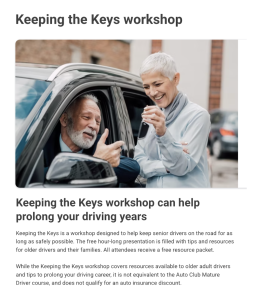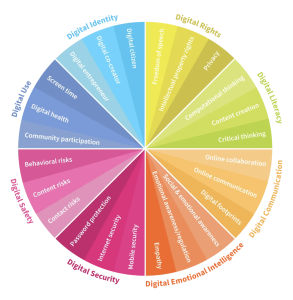Digital Intelligence
I chose the Library as Classroom adventure because I am an academic at heart. Stephens (2014) wrote, “Librarians should seek every opportunity to be teachers in their communities.” I agree and I will. I want to work at the library at my community college and reinforce the idea of the Library as Classroom. It won’t be that easy at a college since there are already a bunch of classrooms and teaching faculty on campus, but I feel like our library is on a bit of hiatus when it comes to encouraging creativity. Even though the library is a popular place on campus as it offers a myriad of computers, plenty of group, private, and open study spaces, and research help, what about all the other possible avenues of discovery? The library could collaborate with other departments to bring art, performance, DIY programs, access and instruction on making things, and more to the library, thereby increasing student and faculty engagement and serving as another classroom.
Stephens (2016) shared the definition of digital literacy from a report by the Institute of Museum and Library Services as the “effective use of information and communication technologies” (p. 120) and went further to say that it could be called life literacy. So digital literacy = life literacy. I totally agree and experienced a firsthand example of what that means.

My mom, who does not like to drive, got stuck driving my kids to their golf lesson at a local municipal golf course. She asked me to text her the directions from her house to the golf course (I was at my house). While she was driving, I called her to give some extra directions about the next leg of her drive, which was to my house. She did not answer. When she finally made it to me, I asked her why she did not use her car’s GPS to guide her to the golf course and why she did not answer her phone using the car’s bluetooth. She said that the GPS was too hard to follow and that she did not know how to answer the phone on her car’s touchscreen. My mom’s low digital literacy completely affects her life literacy! For this particular example, perhaps the library could step in by partnering with the DMV and offer a program that teaches people about technology in the car (Figure 1), plus provide assistance with preparing for the written test for a driver’s license. That would be beneficial to all, not just seniors.
This experience with my mom led me to consider the idea of Digital Intelligence or “DQ”, a set of social, emotional and cognitive abilities that enable individuals to face the challenges and adapt to the demands of digital life (Figure 2). These abilities can be broken down into eight interconnected areas: digital identity, digital use, digital safety, digital security, digital emotional intelligence, digital communication, digital literacy, and digital rights (Park, 2016). Building DQ seems like an ideal opportunity for the library, public or academic, to step in and offer DQ workshops, classes, or other initiatives to their communities.

DQ is not only important for the life literacy of seniors; it is even more important for children, who spend an average of seven hours a day in front of screens (Park, 2016). I am constantly battling with my children to reduce their screentime, especially in the summer when school is not in session, but it is a futile battle and a big stressor in our family. Instead of constantly trying to reduce screentime, I should spend time with my children to hone their DQ. Again, this is a place where libraries might help with some sort of DQ campaign. “Indeed, cultivating digital intelligence grounded in human values is essential for our kids to become masters of technology instead of being mastered by it” (Park, 2016).
References
Park, Y. (2016, June 14). 8 digital skills we must teach our children. Medium: World Economic Forum. https://medium.com/world-economic-forum/8-digital-skills-we-must-teach-our-children-f37853d7221e#.789qtaw64
Stephens, M. T. (2014, November 26). YLibrary?: Making the case for the library as space for infinite learning. State Library of Queensland YLibrary Project. https://www.dropbox.com/scl/fi/4zt1yliwb2ffzr8euix2p/YLibraryInfiniteLearning.pdf?rlkey=m0v6lkd43ufilkp5aktawhlpr&e=1&dl=0
Stephens, M. T. (2016). The heart of librarianship: Attentive, positive, and purposeful change. ALA Editions, an imprint of the American Library Association.

Hi @natalie,
Great post on digital literacy for all ages! I know my mom doesn’t like her car’s digital abilities even though she has a smart phone (more than 1), she still hooks up a cd player to a battery pack (not to the car) to play audio books. She has her reasons for this, for one, she doesn’t like using Libby or e-audiobooks because they are automatically returned. I find older people are often set in their ways and it is difficult to change their behaviour unless they want to. I also struggle with screentime in my household with our teens. We do have the ability to turn off access to WiFi and data but its not really teaching them about how to manage their own screen time. Classes and activities that build on digital intelligence sound like a fantastic opportunity for libraries as classroom. Great post!
@daisychia